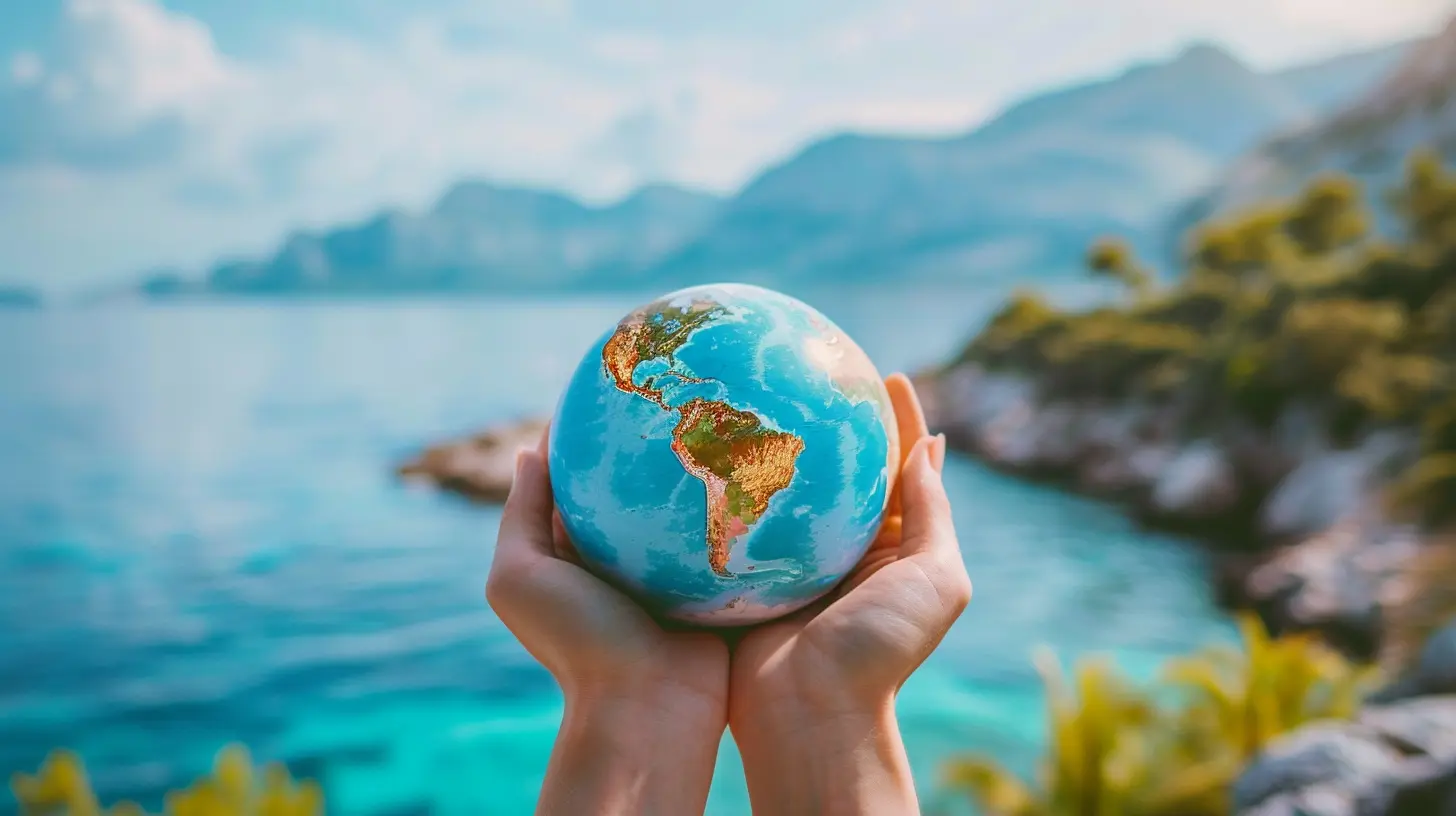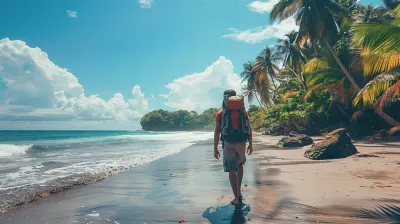Why Sustainable Tourism is the Future of Travel
29 July 2025
Traveling has always been a way for people to escape, discover new places, and experience different cultures. But let's be honest—our love for travel has had a massive impact on the planet. From plastic pollution on pristine beaches to overcrowded tourist hotspots, the consequences of tourism are becoming impossible to ignore.
That’s where sustainable tourism comes in. It’s more than just a trend; it’s a necessity. As travelers become more conscious of their environmental footprint, the industry is slowly shifting towards more responsible and ethical practices. But why is sustainable tourism the future of travel? Let’s dive in.

What Is Sustainable Tourism?
Sustainable tourism is all about traveling in a way that minimizes negative impacts on the environment, supports local communities, and preserves cultural heritage. In simpler terms, it’s about making sure that the places we love to visit today are still there for future generations.Instead of mass tourism that overwhelms destinations, sustainable travel focuses on responsible choices—like staying in eco-friendly accommodations, supporting local businesses, and respecting cultural traditions. It’s not just about avoiding harm but about actively doing good. 
Why Sustainable Tourism Matters
1. Protecting the Environment
Let’s face it—traditional tourism isn’t exactly kind to the planet. Airplanes pump out carbon emissions, single-use plastics pile up in popular tourist spots, and delicate ecosystems get trampled by millions of tourists.Sustainable travel helps reduce these impacts by encouraging eco-friendly alternatives. Think about it:
- Eco-lodges and green hotels use renewable energy sources and minimize waste.
- Slow travel—opting for trains, bikes, or walking instead of planes and cars—cuts down carbon footprints.
- Wildlife conservation efforts ensure that animals are protected instead of being exploited for tourism.
By choosing sustainable options, travelers can help protect nature rather than contribute to its destruction.
2. Supporting Local Communities
Have you ever been to a touristy area where international corporations dominate everything? Big hotel chains, fast-food franchises, and souvenir shops selling mass-produced items—it’s all too common. Unfortunately, much of this money rarely benefits the local people.Sustainable tourism changes that by prioritizing:
- Locally owned accommodations over massive hotel chains.
- Authentic cultural experiences that support traditional ways of life.
- Fair wages for workers in the hospitality and tourism industry.
When you spend your money at a family-owned guesthouse or eat at a local restaurant, you’re directly supporting the people who make the destination special. It’s a win-win.
3. Preserving Culture and Heritage
Culture is what makes each destination unique, yet mass tourism often dilutes or even erases traditional customs. Think about Venice and its struggle with overtourism—historic sites are overcrowded, and many locals are forced to leave due to rising costs.Sustainable tourism respects these cultural treasures by:
- Encouraging immersive travel experiences rather than surface-level sightseeing.
- Educating visitors about local traditions and history.
- Helping protect historical landmarks from wear and tear.
Instead of turning every place into a generic tourist destination, sustainable travel ensures that cultures remain authentic and valued. 
How Travelers Can Embrace Sustainable Tourism
So, what can you do as a responsible traveler? It’s easier than you think. Here are some steps you can take to make your next trip more sustainable:1. Choose Sustainable Accommodations
Look for hotels and lodges that prioritize sustainability. Many eco-friendly accommodations implement practices like:- Using solar or wind energy.
- Reducing water waste with low-flow showers and toilets.
- Sourcing food locally to reduce carbon emissions.
Websites like BookDifferent and EcoBnb help travelers find green-certified stays.
2. Travel Slow and Responsibly
Instead of hopping on five flights in a week, consider slowing down. Take a train, rent a bike, or walk whenever possible. Not only is it better for the planet, but it also allows you to experience places more deeply.Also, be mindful of how you interact with animals. Avoid attractions that exploit wildlife, like elephant rides or dolphin shows. Instead, support ethical sanctuaries that focus on rehabilitation and conservation.
3. Support Local Businesses
Trade in the massive tourist traps for authentic, locally owned businesses. Whether it’s a handmade souvenir, a family-run restaurant, or a guided tour by a local expert, your money can have a direct positive impact on the community.4. Reduce Plastic Use
Travel often comes with a ton of plastic waste—water bottles, straws, takeout containers, you name it. A few simple swaps can make a big difference:- Carry a reusable water bottle and refill it instead of buying plastic ones.
- Bring a cloth tote bag for shopping instead of using plastic bags.
- Use a bamboo or metal straw instead of single-use plastic straws.
Small changes add up when millions of people make them.
5. Leave No Trace
Wherever you go, leave it as you found it—or better. That means:- Staying on marked trails to protect wildlife and vegetation.
- Properly disposing of waste or carrying it back with you if no bins are available.
- Respecting local customs, traditions, and people.
Think of it this way: If every traveler took care of the places they visit, they’d remain beautiful and untouched for generations to come. 
The Future of Travel Is Green
Sustainable tourism isn’t just a passing fad—it’s the only way forward. As climate change accelerates and overtourism threatens the world’s most beautiful destinations, travelers and the industry need to adapt.The good news? More people than ever are demanding responsible travel options. Eco-friendly hotels are popping up, airlines are working on reducing emissions, and travelers are prioritizing experiences that benefit the planet and its people.
By making smarter choices, we can enjoy the thrill of travel without leaving a trail of destruction behind us. After all, the world is too beautiful to exploit—it’s meant to be cherished.
Final Thoughts
The way we travel matters. Every trip, every booking, and every decision we make as tourists has an impact. Sustainable tourism isn’t about sacrificing adventure—it’s about being mindful of how we explore.So next time you plan a trip, ask yourself: How can I make this journey more responsible? Because at the end of the day, the places we love to visit deserve our respect and care.
And if we all do our part, the future of travel will be brighter, greener, and more sustainable than ever.
all images in this post were generated using AI tools
Category:
Sustainable TourismAuthor:

Tracie McAdams
Discussion
rate this article
2 comments
Imani Hayes
Sustainable tourism prioritizes the preservation of natural resources and cultural integrity, ensuring that travel benefits local communities while protecting the environment. As awareness grows, adopting sustainable practices is essential for a viable future in the travel industry.
November 4, 2025 at 3:40 PM

Tracie McAdams
Thank you for your insightful comment! I completely agree that prioritizing both natural resources and cultural integrity is crucial for the future of travel. Sustainable practices not only benefit local communities but also ensure the long-term viability of our planet's treasures.
Astralis Becker
Sustainable tourism is crucial for protecting our planet while enriching travel experiences. By prioritizing eco-friendly practices, we can preserve natural resources and support local communities. Embracing sustainable travel not only enhances our adventures but also ensures future generations can enjoy the beauty of our world. Let's travel responsibly!
August 6, 2025 at 3:19 AM

Tracie McAdams
Thank you for highlighting the importance of sustainable tourism! Your insights perfectly capture how eco-friendly practices benefit both our planet and travel experiences. Let's continue to promote responsible travel for a better future!


